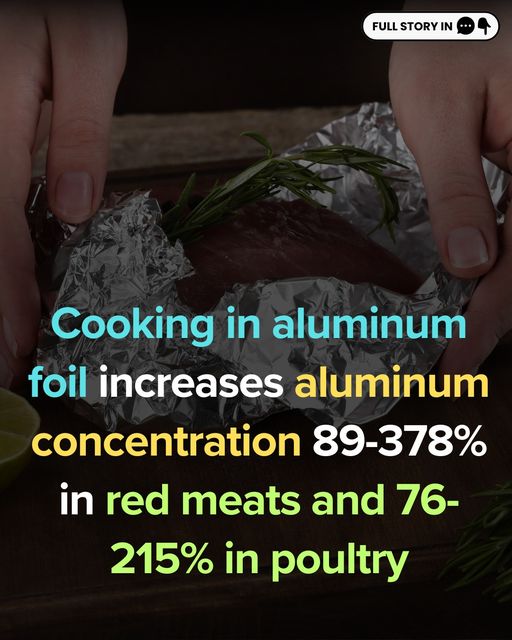Aluminum foil is a staple item in most kitchens. We use it to line baking trays and cook fish, vegetables, and more wrapped inside it both in the oven and on the barbecue. Despite how common it is, many people wonder: Is it actually safe to cook with aluminum foil?
Is It Safe To Cook With Aluminum Foil?
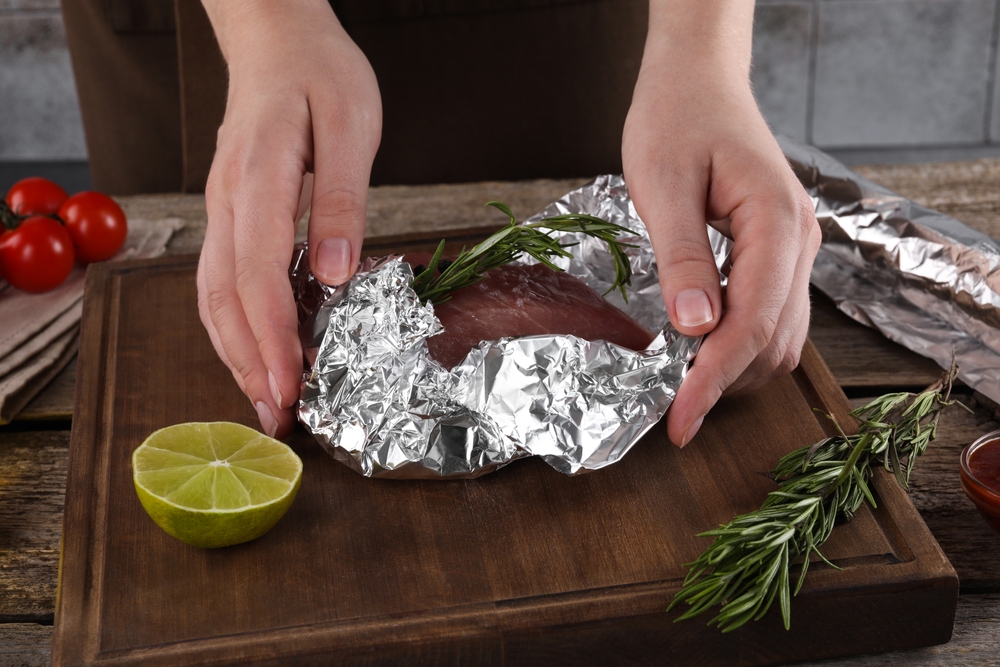
Aluminum is found naturally in a lot of things, including soil, water, and plants. In fact, it is the most abundant metal on the planet, making up about eight percent of the Earth’s mass. It’s even in some foods we eat – citrus fruits, in particular. We consume small amounts of aluminum every single day, whether we use aluminum foil in our homes or not. This is not a concern because our bodies easily and effectively excrete aluminum through our feces. So a little bit of aluminum doesn’t usually cause any problems. (1)
Cooking With Aluminum Foil May increase Aluminum Content in Food
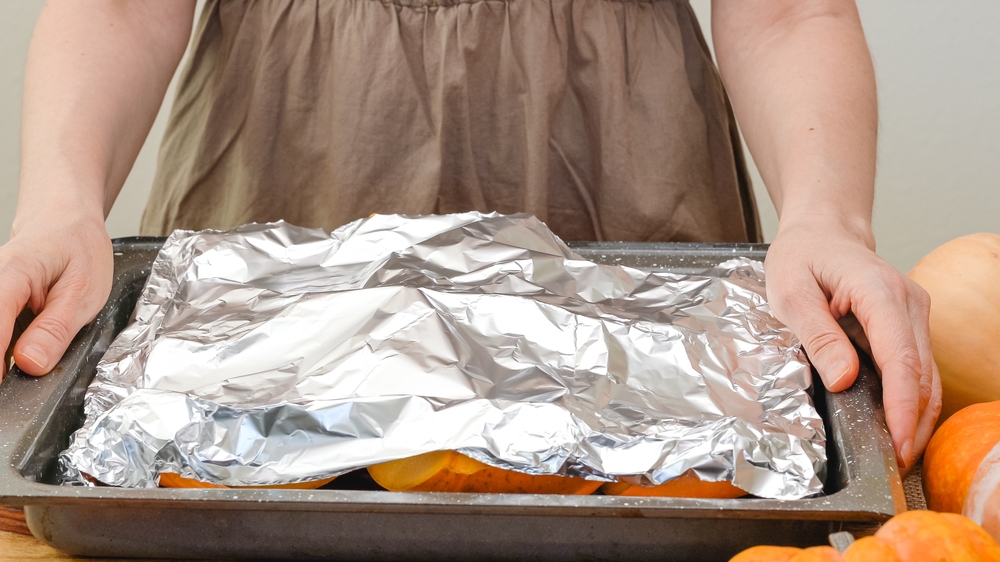
However, cooking with aluminum foil may increase the aluminum content of foods. This is because the food you’re cooking comes into direct contact with the foil—and heat can cause chemicals from the foil to leach into your food. The amount of aluminum that gets transferred depends on how long you cook your food, how high of a temperature, and how much liquid you use (liquid helps carry chemicals). Acids also increase transfer, so cooking with items such as lemon juice can also increase the amount of aluminum now present in the food.
Is This Actually Dangerous?
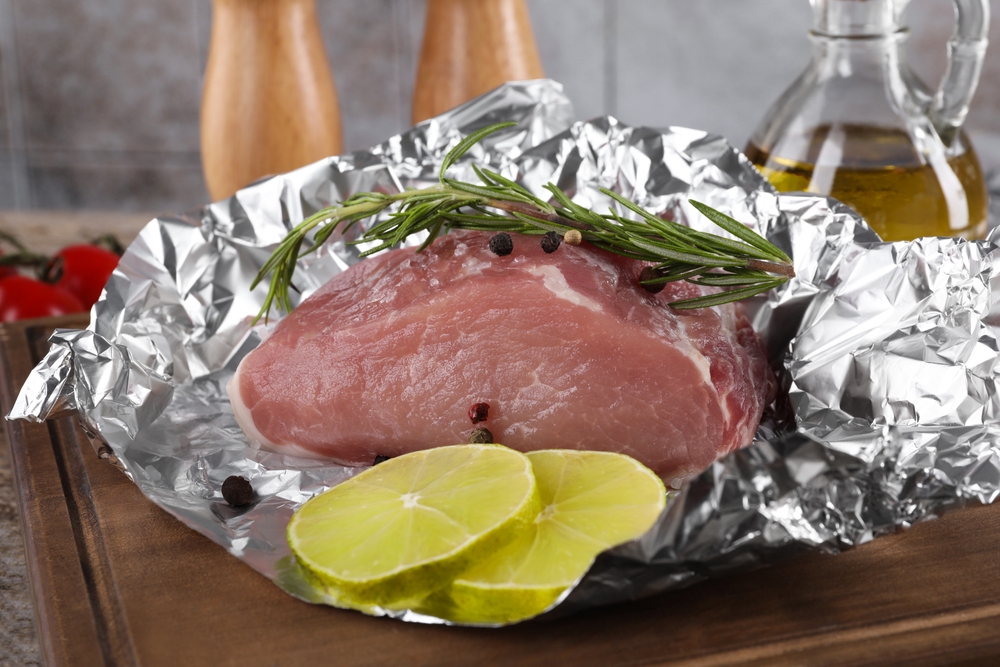
Quickly search aluminum on the internet, and you will find many articles claiming that the amount of aluminum that leaches into your food is large and dangerous. They claim that this can lead to many health problems, including Alzheimer’s and cancer.
However, there is a lot of evidence that shows these claims are false. One study showed that people who ate certain diets were more likely to have high levels of aluminum in their system, but there was no link between this and any health problems. Another study found that while people with dementia had higher levels of aluminum in their brain tissue than those without it, there was no link between the two. While aluminum has been linked to dementia, impaired neural function, and lung irritation, this has never been from routine, daily exposure. The amount of aluminum that you would need to consume through food is far more food than you can eat. (2)
There is also no evidence that aluminum causes cancer. In fact, several studies have looked at the link between aluminum and cancer, and all of them have found nothing. The first was a case-control study that found no association between aluminum exposure and lung cancer risk. The second was a meta-analysis of cohort studies that also found no link with lung or any other type of cancer.
Potential Dangers of Aluminum
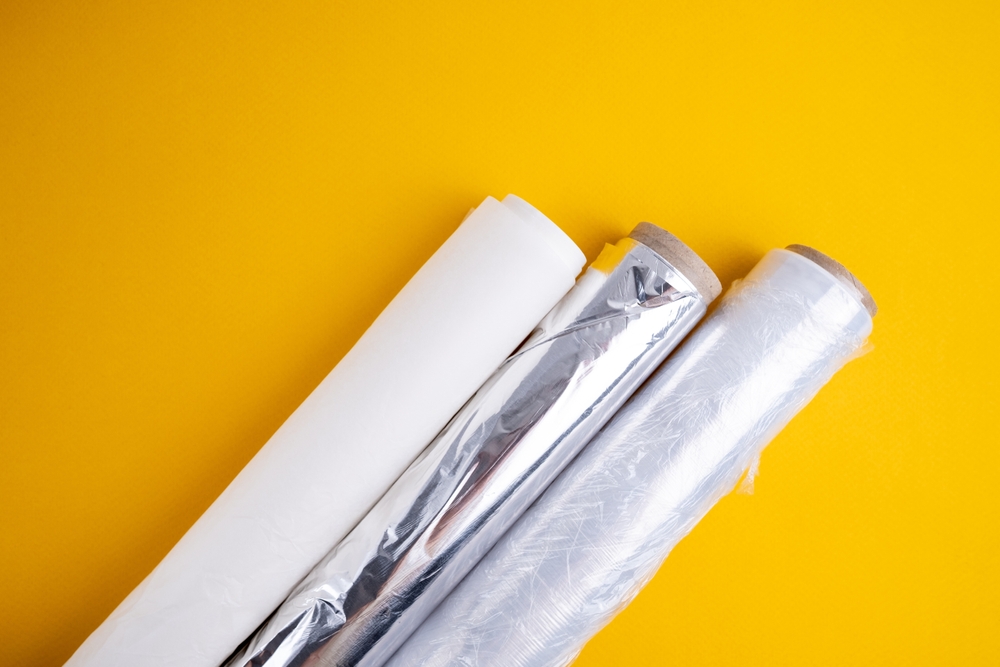
Aluminum is a neurotoxin that can cause brain damage and nerve degeneration. While the amount of aluminum that you would need to consume through food is far more than you can eat, it is possible to be exposed through other means. These are in extreme situations, such as workers exposed to chronic, low-to-high doses of aluminum dust or fumes, usually from aluminum plants or mines. Aluminum toxicity can also be caused by embedded aluminum shrapnel.
The Bottom Line
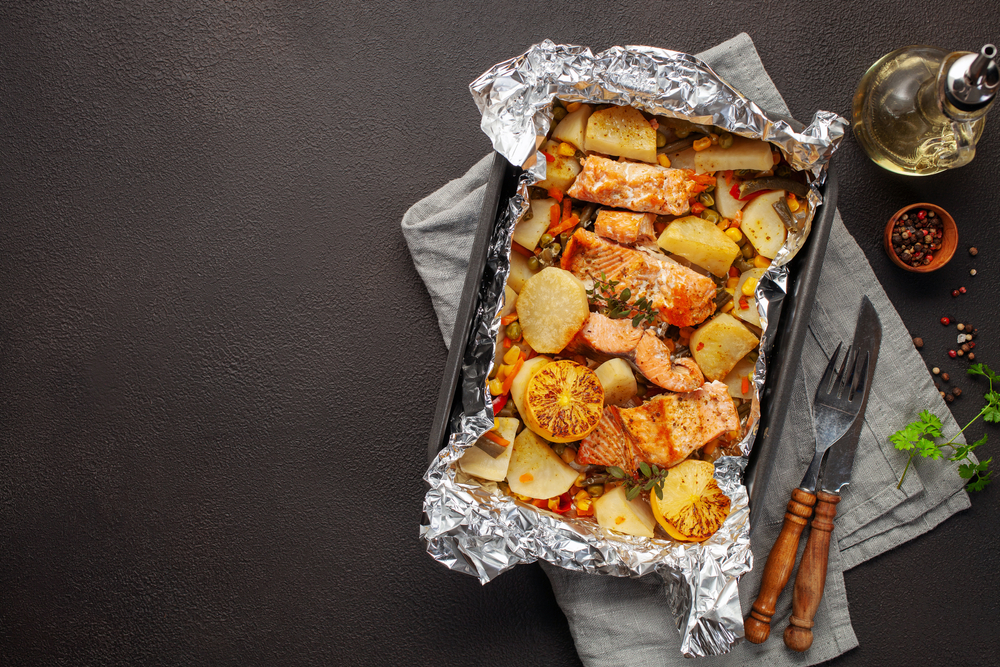
Cooking with aluminum is not as dangerous as you hear online. Our bodies are very efficient at removing the metal from our bodies, which is found already in our soil, water, and food. While aluminum toxicity is possible if exposed to high doses over a long period of time, through food this is not possible. The majority of the aluminum that we ingest is removed from our bodies within 24 hours. If you have concerns about aluminum exposure, talk with your healthcare practitioner. If you wish to avoid cooking with aluminum foil, consider switching instead to parchment paper.
